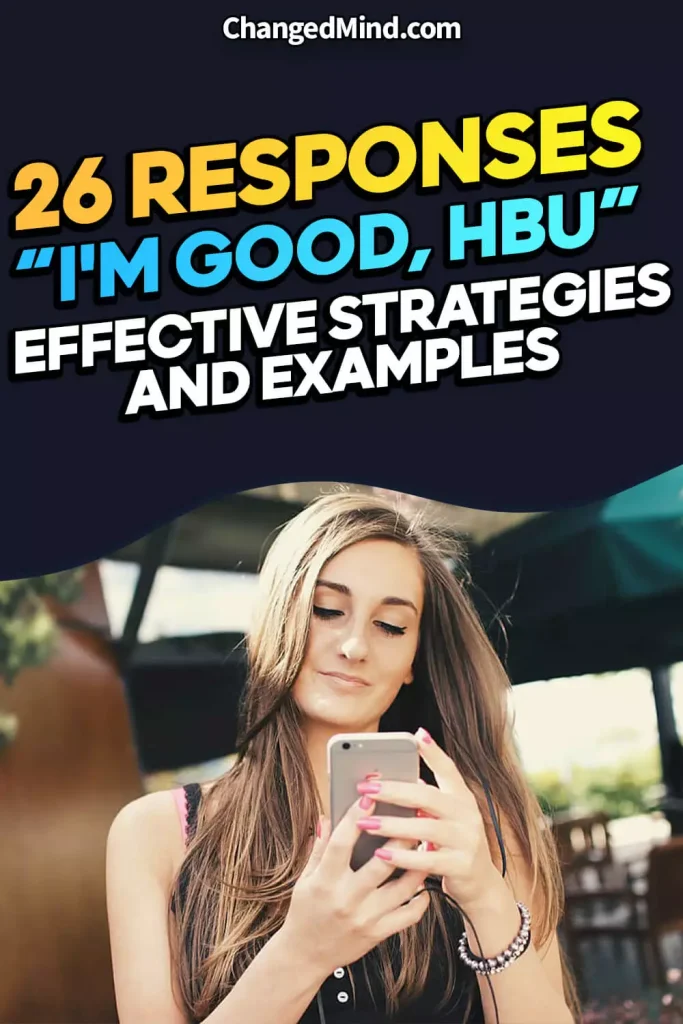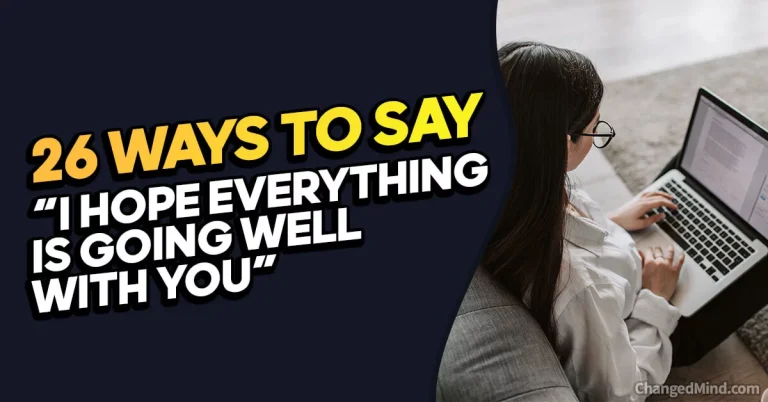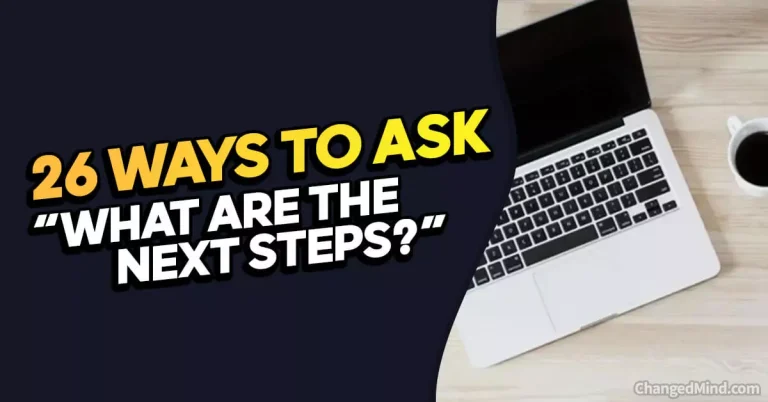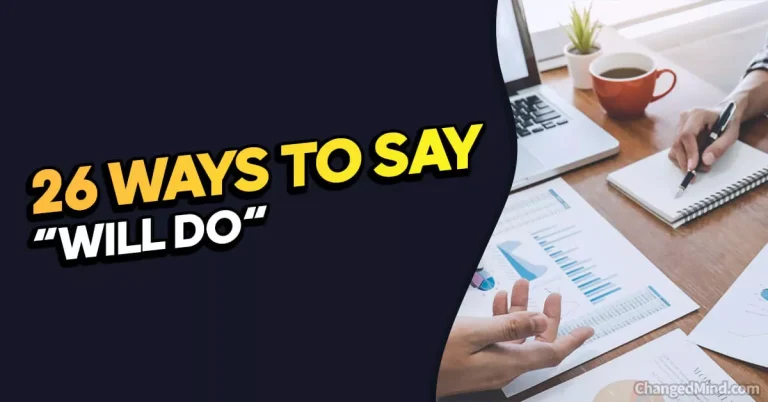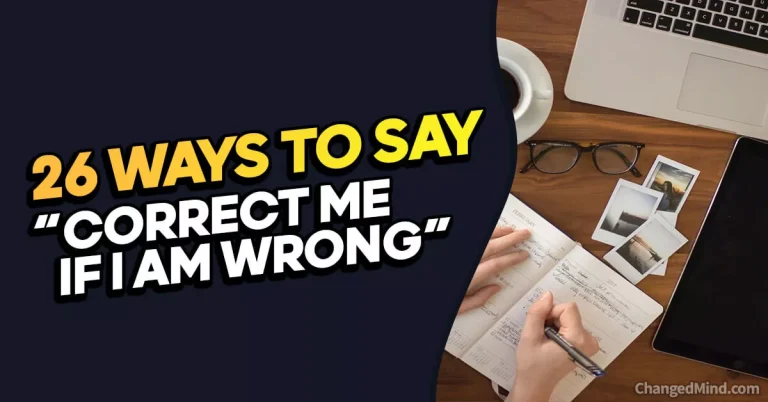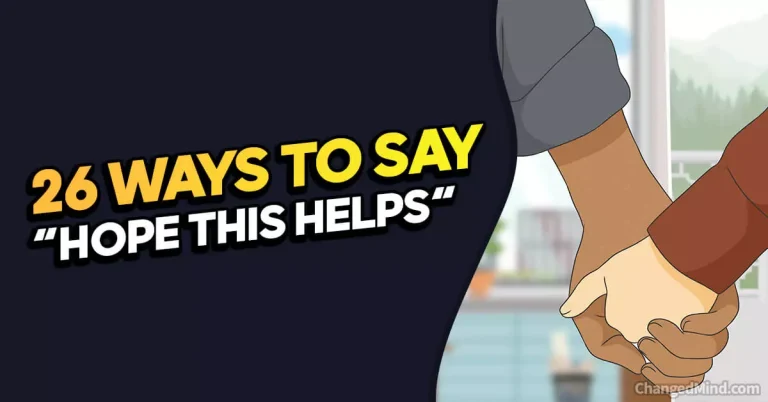Are you tired of resorting to the same old, mundane responses when someone asks, “I’m good, hbu”? Well, fret no more!
We’ve compiled a treasure trove of 26 clever and witty comebacks that will leave your friends, family, and even strangers pleasantly surprised. From hilarious one-liners to heartwarming anecdotes, we’ve got you covered. Get ready to level up your conversational game!
In this article, we’ll share effective strategies and provide real-life examples to help you master the art of responding to “I’m good, hbu.” So, are you ready to unleash your wit and charm? Let’s dive in!
Key points covered in this article:
- The importance of a creative response to “I’m good, hbu.”
- Funny and lighthearted comebacks that will make everyone laugh.
- Thoughtful and engaging responses to deepen connections.
- Anecdotes and stories to add depth and interest to your conversations.
- Tips and tricks to confidently handle any situation where this question arises.
When engaging in conversation, it is common to ask someone how they are doing. The response “I’m good, hbu” has become increasingly prevalent in informal communication. Understanding the meaning behind this phrase and knowing how to respond appropriately can help navigate social interactions effectively.
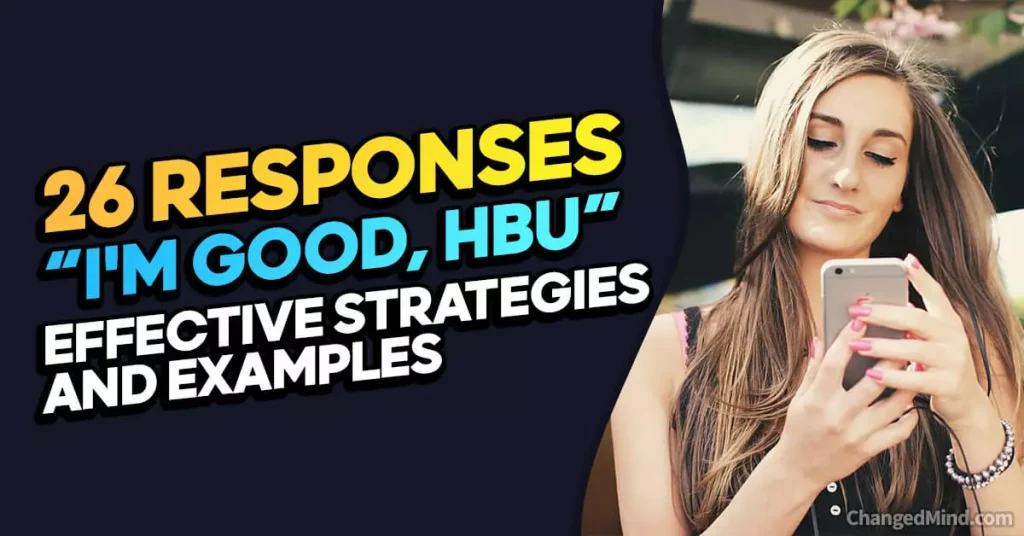
Understanding the Phrase “I’m Good, Hbu”
“I’m good, hbu” is a shortened and informal way of saying “I’m good, how about you?” The use of abbreviations and slang reflects the casual nature of the conversation. It is important to note that the response is generally positive, indicating that the person is doing well.
How to Interpret the Response
When faced with this response, it is essential to interpret it correctly to avoid any misunderstandings. Consider the following factors:
- Acknowledge the Positive Connotation: The phrase “I’m good” generally implies that the person is in a positive state, content, or satisfied with their current situation.
- Consider the Context: Take into account the relationship you have with the person and the specific situation. This can provide insights into their true feelings or intentions behind the response.
Appropriate Responses to “I’m Good, Hbu”
When someone replies with “I’m good, hbu,” you have several options for responding:
- Mirror the Response: A simple and appropriate option is to mirror their response by saying “I’m good too, thanks for asking!” This maintains the upbeat tone of the conversation.
- Offer a Polite Response: If you wish to express politeness and show genuine interest, you can respond with “I’m doing well, thank you for asking. How about yourself?” This allows for further conversation and engagement.
- Provide a Brief Update: If you feel comfortable, you can share a brief update about how you are doing before asking the other person about their well-being. This can help in building a deeper connection and fostering meaningful conversation.
Why People Use “I’m Good, Hbu”

Understanding why people use this phrase can provide insights into their communication style or intentions:
- Informal and Casual Communication: The use of abbreviations and a casual tone reflects a relaxed and informal communication style often seen among friends, acquaintances, or peers.
- Filling Silence or Awkwardness: In some situations, people may respond with “I’m good, hbu” as a way to fill the silence or alleviate any awkwardness in the conversation.
- Lack of Interest in Delving Deep: Sometimes, people may use this response to quickly acknowledge the question without delving into personal details or engaging in a lengthy conversation.
16 Cool Responses to “I’m good, hbu?”
- “I’m good, hbu?” – Just out here living my best life, how about you?
- “I’m good, hbu?” – Can’t complain, well, I could, but who wants to hear that?
- “I’m good, hbu?” – Good vibes only, my friend. What’s the latest with you?
- “I’m good, hbu?” – Oh, you know, just being awesome. How about yourself?
- “I’m good, hbu?” – If I were any better, I’d be twins. How’s your day shaping up?
- “I’m good, hbu?” – Living the dream, one day at a time. What’s new in your world?
- “I’m good, hbu?” – Good enough to make a sloth jealous. What’s the scoop with you?
- “I’m good, hbu?” – Riding the wave of positivity, my friend. How’s life treating you?
- “I’m good, hbu?” – Living my best life, like Beyoncé said. How about you, any exciting updates?
- “I’m good, hbu?” – Grinning from ear to ear, thanks for asking. What’s the word on your end?
- “I’m good, hbu?” – Feeling as cool as a cucumber. Tell me, what’s the latest gossip?
- “I’m good, hbu?” – Rocking and rolling, my friend. What’s the 411 with you?
- “I’m good, hbu?” – Living the dream, one adventure at a time. How about yourself?
- “I’m good, hbu?” – All smiles on this side, my friend. Any exciting news to share?
- “I’m good, hbu?” – Absolutely fabulous, darling. What’s the buzz in your world?
- “I’m good, hbu?” – Blessed and highly favored. Fill me in, what’s the story of your day?
16 Flirty Responses to “I’m good, hbu?”
- “I’m good, hbu?” – Better now that I’m talking to you. How about yourself, any plans for tonight?
- “I’m good, hbu?” – Good, but not as good as seeing your message. Tell me, what’s on your mind?
- “I’m good, hbu?” – Can’t complain, but I’d feel even better if I could see your smile in person. What’s happening with you?
- “I’m good, hbu?” – Good, but it would be even better with you by my side. What’s the most exciting thing you’ve done today?
- “I’m good, hbu?” – Just good? I’m here to make it great. So, what’s the most interesting thing about you?
- “I’m good, hbu?” – Good, but I have a feeling you could make it extraordinary. What’s your secret for having such a captivating personality?
- “I’m good, hbu?” – Good, but talking to you makes it even better. Tell me, what’s your favorite way to spend your free time?
- “I’m good, hbu?” – Good, but it would be amazing to hear your voice right now. What’s the best part of your day so far?
- “I’m good, hbu?” – Good, but I’m curious, are you always this charming? What’s your secret?
- “I’m good, hbu?” – Good, but it would be even better if I could take you out for a drink. Any favorite cocktails?
- “I’m good, hbu?” – Good, but it’s missing a bit of your enchanting presence. What’s the most exciting thing happening in your life lately?
- “I’m good, hbu?” – Good, but I have a feeling you could make it incredible. What’s the most adventurous thing you’ve done recently?
- “I’m good, hbu?” – Good, but talking to you has me smiling from ear to ear. What’s your secret to brightening someone’s day?
- “I’m good, hbu?” – Good, but it would be even better if I could see your gorgeous face. What’s the most attractive quality in a person, in your opinion?
- “I’m good, hbu?” – Good, but it’s not as good as the feeling I get when I’m around you. What’s your idea of a perfect date?
- “I’m good, hbu?” – Good, but I have a feeling you could make it unforgettable. What’s the most romantic thing you’ve ever done for someone?
16 Great responses to “I’m good, hbu” if you want something
- “That’s fantastic to hear! As for me, I’m feeling adventurous. Got any exciting plans or suggestions?”
- “I’m glad to hear you’re doing well! Personally, I’m in the mood for something creative. Do you have any artistic projects in mind?”
- “Awesome! I’m actually looking for a new book to read. Any recommendations?”
- “I’m good too, thanks! By the way, I’m craving some delicious food. Any favorite restaurants or dishes you’d recommend?”
- “Great to know! I’m feeling energetic and up for some outdoor activities. Any suggestions for a fun adventure?”
- “That’s wonderful! I’m currently interested in expanding my knowledge. Is there a fascinating topic or subject you’d suggest diving into?”
- “I’m doing well, thank you! By the way, I’m on the lookout for a new hobby. Any unique hobbies or activities you think I should explore?”
- “I’m good, thanks! I’m in the mood for some entertainment. Any movies, TV shows, or music you’ve been enjoying lately?”
- “I’m glad to hear you’re good! Personally, I’m in a bit of a shopping mood. Are there any cool stores or unique items I should check out?”
- “That’s great! I’m actually interested in finding a new workout routine. Any exercise programs or fitness classes you recommend?”
- “I’m doing well too, thanks! I’m feeling inspired and want to indulge my creative side. Any suggestions for art supplies or craft ideas?”
- “That’s fantastic news! I’m actually on the lookout for some new music to listen to. Any favorite artists or songs you’d recommend?”
- “I’m good as well, thank you! I’m feeling like a mini-adventure. Any local places or hidden gems you think I should explore?”
- “I’m glad to hear that! By the way, I’m in the mood for a good laugh. Any comedy shows, podcasts, or funny videos you can suggest?”
- “That’s wonderful! I’m currently interested in expanding my culinary skills. Any favorite recipes or cooking tips you could share?”
- “I’m doing well too, thanks! I’m feeling like a bit of a challenge. Any puzzles, riddles, or brain teasers you think I should try?”
Understanding Non-Verbal Cues
When interpreting the response “I’m good, hbu,” it is crucial to consider non-verbal cues that may accompany the answer:
- Tone of Voice: Pay attention to the tone of voice used. A cheerful or enthusiastic tone may indicate genuine positivity, while a flat or monotone voice may suggest neutrality or disinterest.
- Facial Expressions: Observe the person’s facial expressions for any signs of genuine happiness or insincerity. Facial cues can provide additional context to their response.
- Body Language: Notice the person’s body language, such as eye contact, posture, or gestures. Positive body language may reinforce the sincerity of their response.
By understanding the meaning behind “I’m good, hbu” and responding appropriately, you can navigate conversations more effectively and foster better communication with others.
Understanding the Phrase “I’m Good, Hbu”
Understanding the phrase “I’m good, hbu” requires analyzing its context, tone, and typical usage. Let’s delve into the meaning behind this common response:
- Context: The phrase is typically used in casual conversations to respond to the question “How are you?” It suggests that the person is content, satisfied, or experiencing no serious problems at the moment.
- Tone: The tone of “I’m good, hbu” can be friendly and informal, indicating that the person is comfortable with the conversation partner. It may also convey a sense of confidence or self-assurance.
- Usage: This phrase is often used in situations where the person may not want to go into detail about their well-being or where a brief response is appropriate. It is a convenient way to acknowledge the question while redirecting the conversation back to the other person (“hbu” stands for “how about you”).
Understanding the meaning behind “I’m good, hbu” allows you to gauge the level of openness or privacy the person prefers in that moment. It’s important to respect their response and not press for further details if they choose to keep it simple.

Now, let’s explore a true historical event that shares a similar tone of voice:
In ancient times, the phrase “I’m good, hbu” would have been unheard of, but people still had ways to express their contentment and inquire about others. One fascinating example is the exchange of greetings among the ancient Romans. When two Romans met, they would often say, “Salve, quid agis?” which translates to “Greetings, how are you doing?”
The phrase “Salve, quid agis?” had a similar purpose to “I’m good, hbu” – it acknowledged the other person and initiated a friendly conversation. Romans, like people today, had moments when they preferred brevity and less personal disclosure. It was a way to maintain social interactions without delving into lengthy explanations.
Understanding the historical context of greetings enhances our perception of language and how it evolves over time. Just as “I’m good, hbu” reflects the informal nature of modern conversations, “Salve, quid agis?” represented the ethos of communication in ancient Rome.
How to Interpret the Response
When someone responds with “I’m good, hbu” to a question, it can be challenging to interpret their response. However, by following a few steps, you can better understand what they mean:
- Consider the context: The context in which the response was given is crucial in understanding its meaning. Think about the previous conversation or the topic being discussed.
- Analyze the tone: Pay attention to the tone in which the response was delivered. Tone can often indicate the person’s true feelings or intentions.
- Look for non-verbal cues: Non-verbal cues such as body language and facial expressions can provide additional insights into what the person really means.
- Consider the relationship: Your relationship with the person can also play a role in understanding their response. If you know the person well, you may have a better understanding of their typical communication style.
- Listen for hesitation or enthusiasm: If the person’s response is accompanied by hesitation or lack of enthusiasm, it may indicate that they are not actually doing well.
Based on these steps, you can interpret the response more accurately and respond accordingly.
Here are some suggestions on how to respond:
- Clarify: If you are unsure about their response, ask them for clarification. Say something like, “When you say ‘I’m good,’ do you mean everything is okay, or is there something bothering you?“
- Engage in active listening: Give the person an opportunity to express themselves. Show empathy and let them know that you are there to listen and support them if needed.
- Respect their boundaries: If the person doesn’t elaborate on their response or doesn’t seem open to discussing further, respect their boundaries and avoid prying for more information.
- Offer support: If it becomes apparent that the person is not actually doing well, offer your support and let them know that you are available to talk or help in any way you can.
- Maintain positivity: Regardless of their response, maintain a positive attitude and show genuine interest in their well-being.
By following these suggestions, you can navigate the conversation effectively and ensure that you understand the person’s response accurately.
Appropriate Responses to “I’m Good, Hbu”

When someone says “I’m good, hbu” in a conversation, it can sometimes be challenging to choose an appropriate response. Here are some appropriate responses to consider:
- Positive affirmation: Respond by acknowledging the person’s statement and expressing your agreement or appreciation. For example, you could say, “That’s great to hear!” or “I’m glad you’re doing well.“
- Similar response: If you are also doing well, you can simply reply by saying, “I’m good too, thanks for asking.” This shows that you are reciprocating their concern.
- Elaborate response: If you want to provide more information about how you’re doing, you can give a brief update on your current situation. Keep it concise and relevant to the conversation.
- Ask more about them: Show interest in the other person’s well-being by asking follow-up questions. You can inquire about their day, any exciting events happening in their life, or their overall state of mind. This demonstrates attentiveness and engagement in the conversation.
- Share something positive: Use this opportunity to share something good that has recently happened in your life. It could be an accomplishment, a fun experience, or even a happy story. This can help to keep the conversation positive and engaging.
- Offer help or support: If you sense that the person might be dealing with something challenging, you can extend your support by saying, “If there’s anything I can do to help, please let me know.” This shows compassion and willingness to be there for them.
Remember, the key is to respond genuinely and with sincerity. Consider the context of the conversation and the relationship you have with the person to tailor your response appropriately.
Why People Use “I’m Good, Hbu”
There are several reasons why people use the response “I’m good, hbu” in conversations. Here are some of the common reasons:
- Politeness: One of the main reasons people use this response is to be polite. It is a way for them to acknowledge the other person’s question and show that they are interested in knowing how the other person is doing.
- Brevity: Using the phrase “I’m good, hbu” is a concise and efficient way to respond. It allows people to quickly convey that they are doing well without going into too much detail.
- Social norms: In many social situations, it is considered customary to ask someone how they are doing as a form of small talk. “I’m good, hbu” has become a common response in these situations because it follows the expected social script.
- Avoiding oversharing: Sometimes, people use this response to avoid sharing personal information or going into details about how they are actually feeling. It serves as a simple and non-committal answer to maintain privacy and keep the conversation light.
- Convenience: Using a predefined response like “I’m good, hbu” can be convenient, especially in situations where people are multitasking or have limited time to engage in a conversation. It allows them to quickly respond and move on.
- Social connection: By asking “hbu” (how about you), people show that they are interested in the other person’s well-being and that they are open to continuing the conversation. It helps foster social connection and reciprocity.
It is important to note that while “I’m good, hbu” is a commonly used response, it may not always reflect a person’s true emotions or well-being. It is often used as a social convention rather than an authentic expression of one’s feelings. Therefore, it is crucial to pay attention to other cues and context in a conversation to better understand a person’s actual state of mind.
Understanding Non-Verbal Cues
Understanding non-verbal cues is crucial for effective communication. Non-verbal cues encompass the gestures, facial expressions, body language, and tone of voice that accompany verbal communication. These cues can provide valuable information about the emotions, intentions, and attitudes of the speaker. By accurately interpreting non-verbal cues, we can better understand the underlying messages being conveyed.
1. Facial Expressions: The face is a rich source of non-verbal cues. Pay attention to facial expressions such as smiles, frowns, raised eyebrows, and eye contact. These can indicate emotions like happiness, sadness, surprise, or skepticism. For example, a genuine smile accompanied by eye contact often signifies genuine interest.
2. Body Language: Posture, gestures, and movements can convey a lot of information. Watch for open and relaxed postures, which suggest receptiveness and honesty. Pay attention to gestures like nodding, which indicates agreement or understanding. Sudden shifts in body movement or crossed arms may suggest discomfort or defensiveness.
3. Tone of Voice: The way someone speaks can reveal emotions and attitudes that may not be explicitly stated. Listen for variations in pitch, volume, and pace. A cheerful tone suggests positivity, while a monotone voice may indicate boredom or disinterest.
4. Proximity and Personal Space: The distance between individuals during a conversation can also convey information. People from different cultures may have varying comfort levels regarding personal space. Respect personal boundaries and adjust accordingly.
5. Eye Contact: Eye contact plays a crucial role in non-verbal communication. Maintaining appropriate eye contact shows attentiveness and interest in the conversation. However, excessive or prolonged eye contact can be intimidating or uncomfortable for some individuals.
By understanding these non-verbal cues, we can enhance our overall communication skills. However, it’s important to note that non-verbal cues can vary across cultures, and it’s essential to be mindful of these differences. Additionally, it’s important to consider that non-verbal cues should be interpreted in conjunction with verbal communication to gain a complete understanding. Practice observing and interpreting non-verbal cues to become a more effective communicator and foster stronger connections with others.
Some Facts About “How to Respond to “I’m Good, Hbu””:
- ✅ The acronym “HBU” stands for “How About You.” It is commonly used in text messages to ask for the other person’s response or opinion.
- ✅ Various responses can be used when someone responds with “I’m good” to keep the conversation going and show different emotions or states of mind.
- ✅ Responses like “I am well,” “I am fine,” or “I am good” can convey a simple and straightforward state of being.
- ✅ Other responses like “nothing much” or “same old same old” suggest that there isn’t anything significant happening or that the day has been regular or uneventful.
- ✅ Flirty responses can also be used to add humor or playful elements to the conversation, such as “how about we…” or using cheeky phrases to create suspense and engage the other person.
Frequently Asked Questions
1. How should I respond when someone asks “I’m good, hbu?”
When someone asks “I’m good, hbu?” you can respond with a suitable reply based on your current mood or situation. Some cool responses can be:
- “I am well, thank you! How about you?”
- “I’m doing pretty okay, thanks for asking. What about you?”
- “Nothing much, just having a regular day. How about yourself?”
Remember, the response should match your genuine feelings and keep the conversation flowing.
2. What does “hbu” stand for in a text message?
“hbu” is an informal acronym that stands for “How About You.” It is often used in ongoing conversations to inquire about the other person’s opinion or response.
3. How can I make a conversation more interesting after replying “I am good”?
To make a conversation more interesting after replying “I am good,” you can share a small detail about your day or ask a follow-up question. For example:
- “I am good! Just finished a productive day at work. How about you? Did you have any exciting plans today?”
By adding a bit of personal information or asking about the other person’s day, you can keep the conversation going and make it more engaging.
4. What are some alternative responses to “I’m good, hbu?”
Instead of simply replying “I’m good,” you can use a variety of alternative responses to add more depth to the conversation. Here are a few examples:
- “Fresh as a daisy, thank you! And how are you doing?”
- “My day has been great so far. What about you? Anything interesting happening?”
- “Couldn’t have been better! How about you? How’s your day going?”
By using these alternative responses, you can show enthusiasm and invite further discussion.
